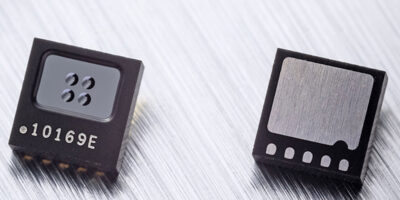Melexis introduces the first automotive-grade surface-mount infrared temperature sensor
Melexis expands its far-infrared (FIR) temperature sensor range with the MLX90637. It is the world’s first surface-mount device (SMD) designed specifically for temperature monitoring of critical components in electric vehicle (EV) powertrain applications. The MLX90637 brings the benefits of automated SMD assembly and accurate non-contact temperature sensing to the automotive sector.
The MLX90637 is designed for critical temperature monitoring applications within electric vehicles (EVs), such as inverters, motors, and heating, ventilation, and air conditioning (HVAC) systems. The speed and accuracy of readings are paramount for a vehicle’s operation. While negative temperature coefficient (NTC) thermistors have traditionally served these systems, the SMD FIR MLX90637 offers several advantages, according to Melexis.
The sensor’s SMD packaging supports automated PCB-based assembly, eliminating the need for manual labour associated with NTC solutions. In EVs, its intrinsic galvanic isolation helps to enhance safety by separating high- and low-voltage circuits, and the inherent electromagnetic compatibility (EMC) eliminates typical noise challenges associated with NTC wires. Sensor longevity in a challenging automotive environment is further enhanced by the wide ambient operating temperature range of -40°C to 125°C.
In applications such as inverter busbar monitoring where temperature must be carefully managed, the MLX90637’s 50° field of view, superior 0.02°C resolution and fast response time ensure vehicles can push performance without risking damage. As well as the performance advantage, by utilising an SMD design, the FIR MLX90637 can achieve cost advantages over NTC thermistors, through time savings during assembly as well as providing additional component-level savings compared to TO-CAN alternatives.
System integration is also simplified with a 3.3V supply, factory calibration (including post-calibration), and an I2C interface for communication with a host MCU, including a software-definable I2C address via an external pin, as well as the compact 3x3mm² packaging.




